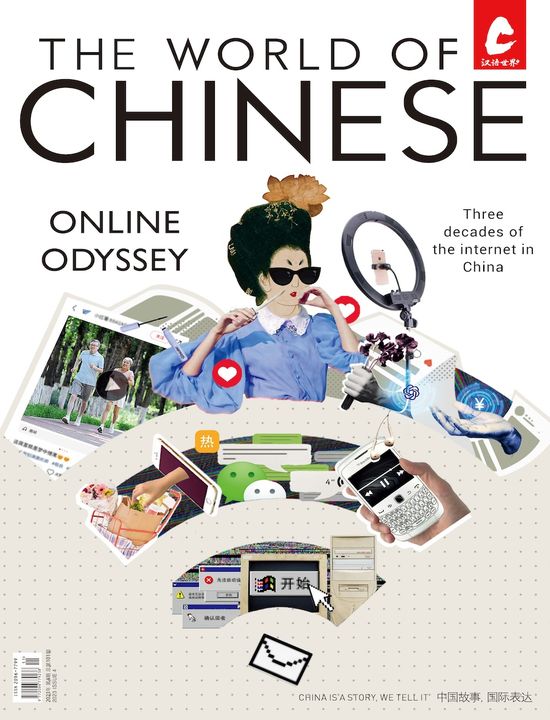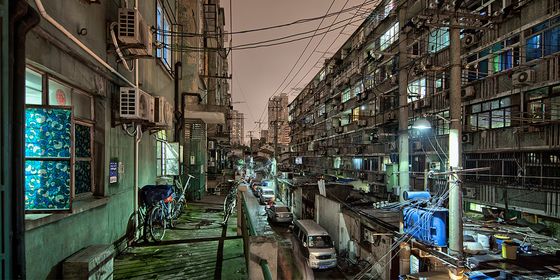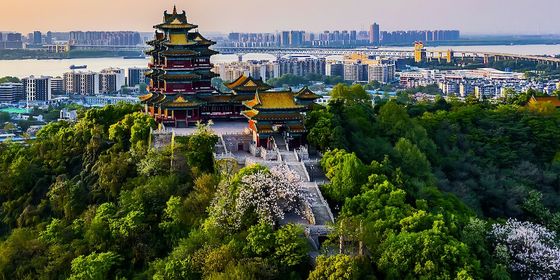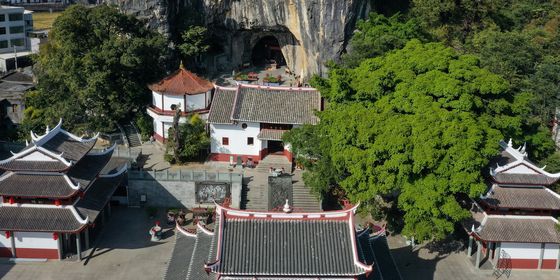Quirky adjectives and sayings from a city known for migratory birds
For over a decade, The World of Chinese has been offering modern Chinese-language instruction from street talk to social phenomena to character tales. With 129 officially recognized dialects (方言) in the land, though, we have barely scratched the surface of everything there is to learn.
On select Fridays, TWOC will be presenting a basic lesson on speaking like a native of a certain region of China.
“The frontier takes a different look in autumn, and Hengyang wild geese leave without lingering,” the the Northern Song (960-1127) politician Fan Zhongyan (范仲淹) once wrote about the onset of autumn in the remote northwestern city of Yanzhou (present-day Yan’an, Shaanxi).
Hengyang (衡阳), in south-central Hunan province, was said to be where these wild geese, escaping the cold of Shaanxi, ended up for winter, earning it the nickname “Wild Goose City.” The name was first recorded in the essay “Two Capitals (《两都赋》)” by Eastern Han (25-220) historian Ban Gu (班固), and widely adopted by poets afterwards, though no scientific evidence exists that it is true. The city’s proper name comes from its location south of Mount Heng (衡山), one of the Five Sacred Mountains of China, the side exposed to the sun (阳).
The dialect of Hengyang is influenced by both the Xiang (Hunan) and Gan dialect groups, the latter of which is more commonly used in Jiangxi province. However, there are five urban districts, five counties, and two county-level cities all under the administration of Hengyang prefecture, and their speeches differ so greatly that it is said “accents differ each five kilometers” in the region. Often, locals can tell one another’s hometown just by their accents.
Hengyang fangyan refers to the dialect spoken in the city, as well as surrounding counties. In contrast to the four tones, 23 consonants, and 24 vowels of Putonghua (Mandarin), Hengyang fangyan has six tones, 19 consonants, and 39 vowels, featuring a greater vividness of expression. This, with the quickness of local speech, makes Hengyangese all but impossible for Mandarin speakers to understand.
Many Hengyang locals think that their fangyan sounds like Sichuan dialect, a perception not shared by Sichuan locals. Indeed, there are few points of resemblance, except for the tone. Here are some basic rules of Hengyang fangyan:
- The pronouns wǒ (我, I) and nǐ (你, you) are the same as Mandarin, but tā (她/他/它, she/he/it) is replaced by jǐ (几), which also refers to children. For example, nánhái (男孩, boys), nǚhái (女孩, girls) and xiǎo háizi (小孩子, children) are respectively 徕几 (láijǐ), 妹几 (mèijǐ) and 细噶几 (xìgājǐ).
- As with Nanchang dialect, 恰 (qià) is the word not just for eating, but anything that goes in one’s mouth, such as 恰饭 (qià fàn, having the meal), 恰水 (qià shuǐ, drinking water), and even 恰烟 (qià yān, smoking).
- However, when it comes to the popular Hengyang rice noodles, locals prefer the verb 嗦 (suo), which mimics the sound of slurping.
- Many words starting with sh, zh (z) and ch change in pronunciation from Mandarin. For example, shén (神, god) is replaced by xíng, shū (书, book) by xū, and zhēn (真, real) by jīn.
- Like many other southern dialects, Hengyang dialect pronounces the h sound as an f sound: Héngyánghuà (衡阳话, Hengyang dialect) is pronounced Héngyángfā.
- Hengyanghua uses lots of modal particles. For example, 哒 (dá) is used at the end of both questions and statements.
- Adjectives are very descriptive in Hengyanghua. Though there are adverbs like hěn (很, very) for emphasis, many adjectives are in fact unique expressions describing the object in great detail, such as guǎ lǜ (寡绿, “only green”) for pure green, and jiāo gàn (焦干, “burnt dry”) for a kind of dryness that resembles being scorched.
- The fangyan is also known for whimsical expressions. For example, sleeping is called kùn yǎn bì (困眼闭, literally “closing sleepy eyes”), losing face is chū bào (出报, literally “appearing in the newspaper”), and unfortunate timing is bèi shí (背时, “against the time”).
Here are five sample sentences by a native of Hengyang city:
- “Have you eaten yet? Let’s go eat, my treat!”
Nǐ qià fàn mao, qiǎng nǐ qià fàn qiè! (你恰饭冒,抢你恰饭切!)
In Hengyang dialect, mào (冒) can be a modal particle to represent a question, as above, or a negation particle meaning “no” or “not.” Qiǎng (抢) means qǐng (请, to invite) in Mandarin, and qiè (切) means qù (去, go). Usually, the person who makes the dinner invitation pays the bill.
- “Do you know that new rice noodles shop?”
Nǐ xiǎodé nà jiǎ xīn kāi guǒ lǔfěndiàn bu? (你晓得那甲新开果卤粉店不?)
Rice noodles are the most popular breakfast item in Hengyang. Though time-honored brands may inspire more trust, locals like to try out new businesses when they can. Jiǎ (甲) is equivalent to the Mandarin quantifier gè (个), and guǒ (果) to the particle de (的).
- “I say, you are so thin; you need to eat more”
Gēn nǐ guǎng lo, nǐ guǒ sòu, yào duō qià diǎn jǐ. (跟你广咯,你果瘦,要多恰点几。)
广 (guǎng) is the Hengyang word for “to say” or “speak.” Here, guǒ (果) is used for emphasis, as in “so thin”
- “What are you doing? If you have no plans, come out and play!”
Nǐ zài zuò mǎguǒ, mào shì yīqǐ chūlái shuǎ sā! (你在做嘛果,冒事一起出来耍撒!)
In the place of “what (什么),” Hengyang locals use mǎ 嘛 or mǎguǒ 嘛果. The modal particle 撒 (sā) replaces the Mandarin ba (吧). This is the handiest way to invite a local to hang out
- It’s a nice day, and good for going out.
Tiānqì guǒ hǎo, kěyǐ chū qiè shuǎ dá. (天气果好,可以出切耍哒。)
This is a very useful phrase, given the consecutive rainy days in the south during winter…














